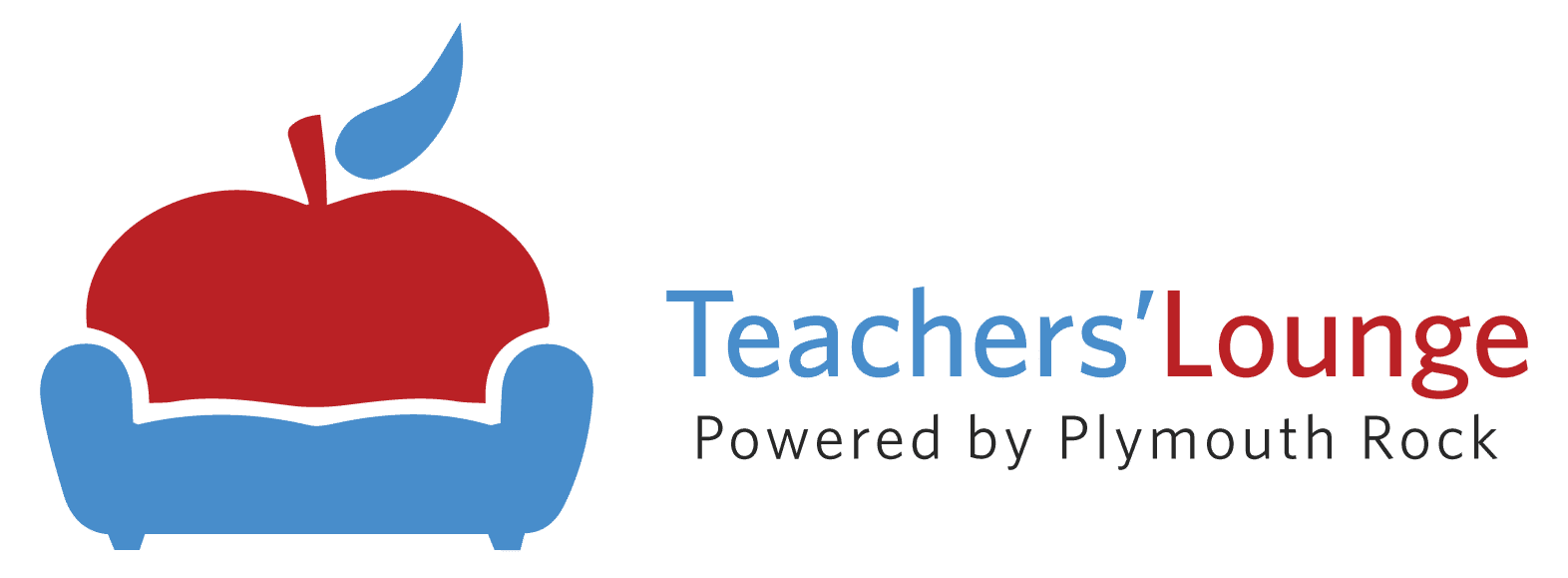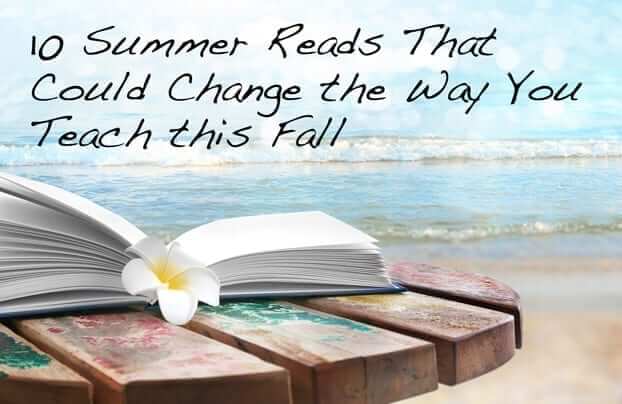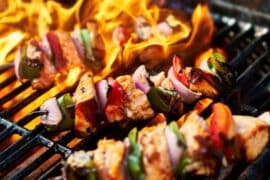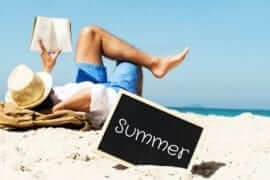10 Summer Reads that Could Change the Way You Teach this Fall
Summer is the perfect chance to catch up on up-and-coming ideas in education. Check out these reads and go into the school year with new tactics to help your students, a different perspective on schooling, and inspiring stories to fuel you this coming year. Here are some of the latest (and greatest) trending books in education, hand-picked by NJ Teachers’ Lounge.
1. Make It Stick: The Science of Successful Learning by Peter C. Brown, Henry L. Roediger III, Mark A. McDaniel
If you want to learn more about the science of learning, pick up Make It Stick: The Science of Successful Learning. By utilizing recent cognitive psychological studies, the authors not only explain the information available in the field, but also apply it to real-life teaching scenarios. The book offers tactics and solutions for educators and students alike, challenging trendy quick fixes to the issue of retaining information. It is an easy read, with clear, real-world examples.
2. Grit: The Power of Passion and Perseverance by Angela Duckworth
In this New York Times Bestseller, Angela Duckworth talks “grit:” a combination of passion and perseverance, and the key to achieving success. The author turns inward and outward in the book, talking about her own life experience as well as that of others in the field. As an expert in non-I.Q. competencies, Duckworth talks to students, teachers, and high achievers, hammering in the importance of endurance.
3. Writing Strategies Book: Your Everything Guide to Developing Skilled Writers by Jennifer Serravallo
If you’re looking for new strategies to teach writing in the fall, be sure to check out Jennifer Serravello’s new book, which offers plans for classrooms as well as individual students. The Writing Strategies Book presents lesson plans the are ready to use. Serravello organizes her work around 10 instructional goals, and provides over 300 strategies to help students to curate their own ideas and work creatively with others.
4. See Me After Class: Advice for Teachers by Teachers by Roxanna Elden
Roxanna Elden’s See Me After Class navigates the hardships of the classroom with humor and grace. Perfect for new teachers, it offers no-nonsense advice from veterans intended to inspire newer educators to persevere through the difficulties of this invaluable occupation.
5. Disrupting Thinking: Why How We Read Matters by Kylene Beers and Robert E. Probst
Kylene Beers and Robert E. Probst tackle the issue of disengaged readers in their 2017 release. Described as humorous and practical, Disrupting Thinking: Why How We Read Matters offers ready-to-use classroom strategies to change the ways educators engage readers with works of fiction and non-fiction. The book aims to help students develop life-long reading habits as well as deepen their comprehension.
The authors describe why they think critical readers are important now, more than ever: “We think it’s time we finally do become a nation of readers, and we know it’s time students learn to tell fake news from real news…Disrupting Thinking is, at its heart, an exploration of how we help students become the reader who does so much more than decode, recall, or choose the correct answer from a multiple-choice list.”
6. The Political Classroom: Evidence and Ethics in Democratic Education (Critical Social Thought) by Diana E. Hess and Paula McAvoy
In our increasingly polarized society, the question of how to address politics in a constructive, non-partisan way is more crucial than ever. In The Political Classroom, Hess and McAvoy propose strategies for fostering dialogue across the political divide. Winner of the 2016 Grawemeyer Award in Education, the book intends to improve classroom deliberations through an understanding of how “political polarization and social inequality affect classroom dynamics.”
7. The Freedom Writers Diary by Erin Gruwell and The Freedom Writers
As a young high school teacher in California, Erin Gruwell’s classroom consisted of a group of students deemed “unteachable.” Her dedication to spreading tolerance and understanding in a world full of hatred, abuse, and violence is documented in The Freedom Writers Diary, which consists of the personal writings of the high school students as well as narrative asides from Gruwell, who now teaches at a college level and continues to write about her experience. If you’ve managed to go this long without reading this classic, pick it up this summer.
8. For White Folks Who Teach in the Hood… and the Rest of Y’all Too: Reality Pedagogy and Urban Education by Christopher Emdin
Award-winning educator Christopher Emdin debunks outdated approaches to urban education and presents his theory of “Reality Pedagogy” in his new book, which combines personal anecdotes with research, theory and practice. He engages with urban youth by bringing culture into the classroom, using call and response and hip-hop, and, at the most basic level, acknowledgment of students’ value and humanity to improve education. In his distinct writing style, which combines both street vernacular and critical theory, Emdin’s book has been described as an essential read for every teacher, regardless of the demographics of their classroom.
9. Helping Children Succeed: What Works and Why by Paul Tough
Paul Tough, author of How Children Succeed, approaches childhood adversity in his new book, Helping Children Succeed. A regular contributor to This American Life and The New York Times Magazine, Tough is a natural storyteller. The book addresses practical steps to help improve children’s chances of success in the classroom after having experienced poverty and instability in their earliest years.
10. The Death of Expertise: The Campaign Against Established Knowledge and Why it Matters by Thomas M. Nichols
Interested in how the onslaught of information brought on by the digital age effects learning? Nichols tackles the growing rejection of expertise; in an age where “everyone knows everything,” how does our democracy function? What authority do educators have when information is so widely available and there are no clear guidelines to distinguish between the comparitive quality of multiple sources?
Written by Megan West





